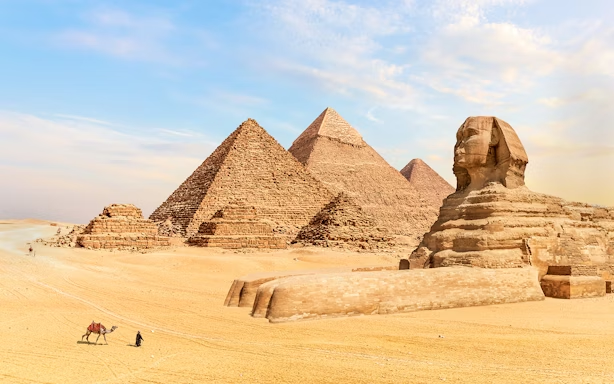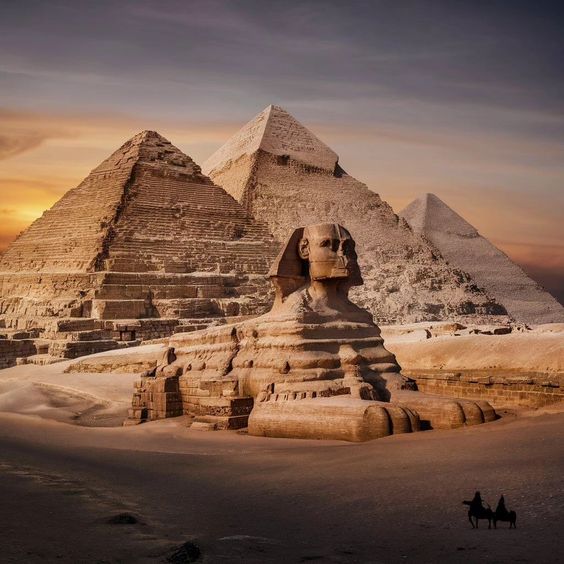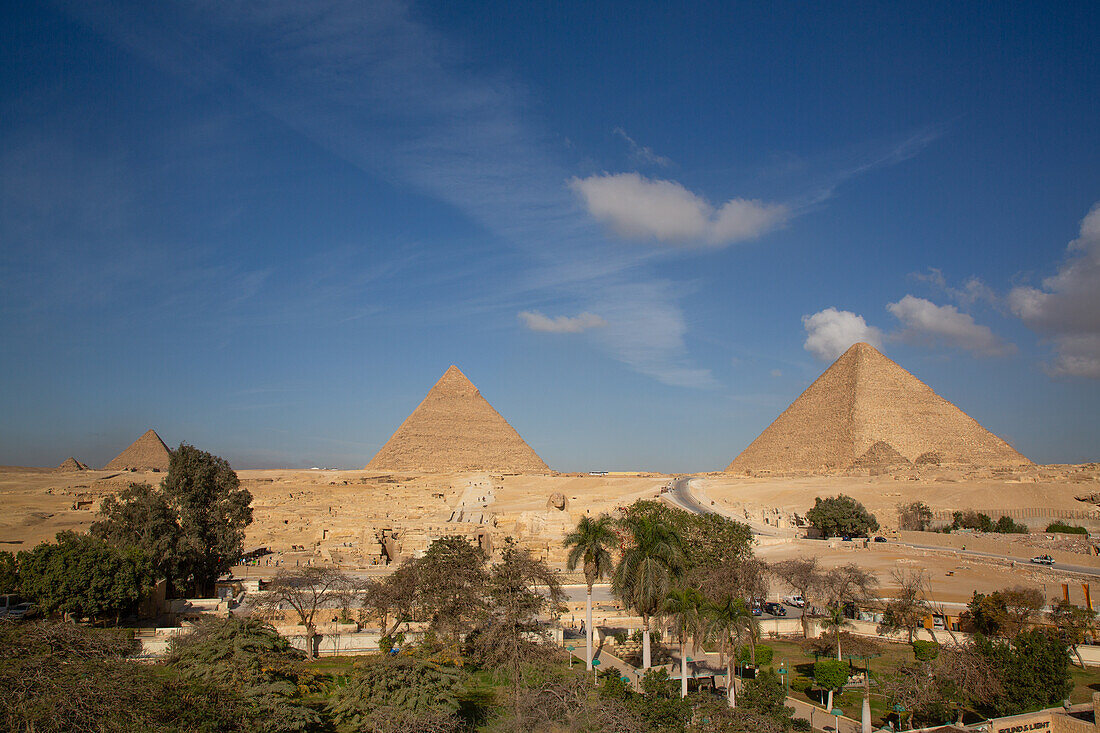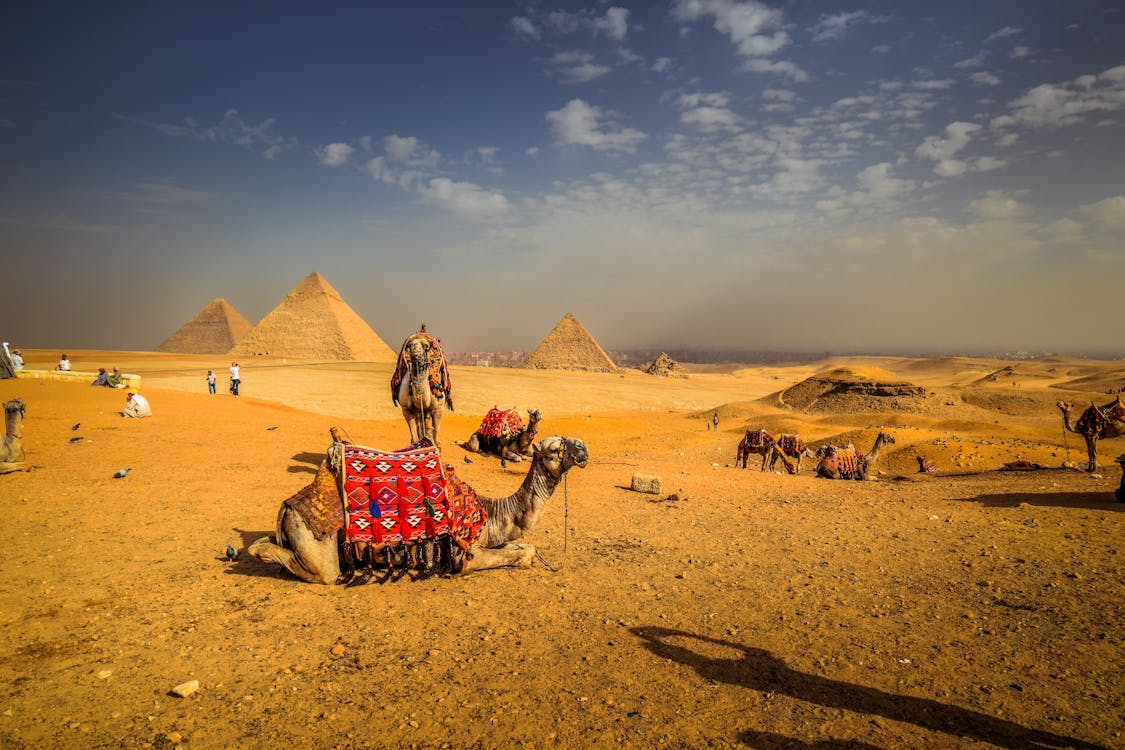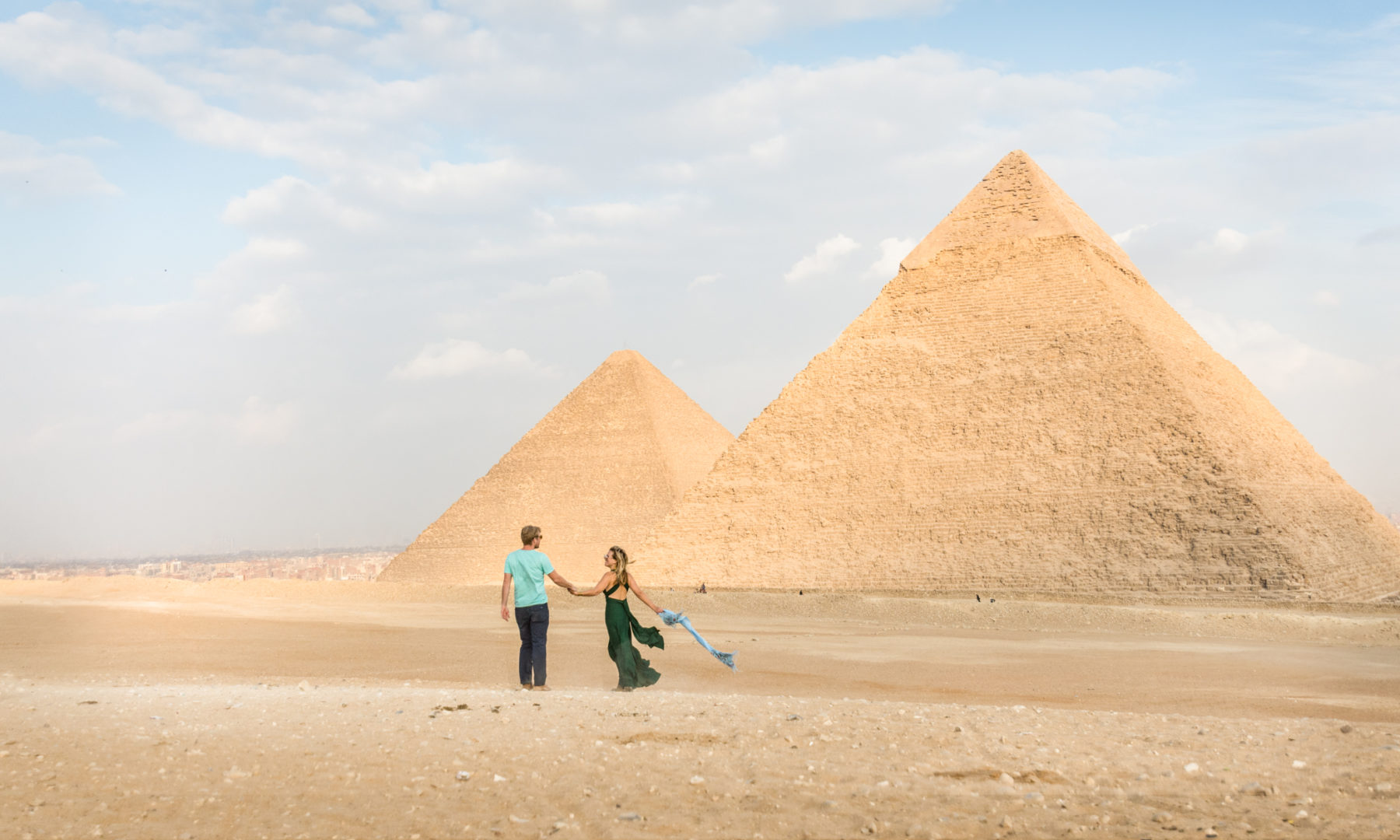History of Egyptology
History of Egyptology
Egyptology is that branch of study which deals with ancient Egypt, a civilization lasting more than three thousand years. Language, history, culture, religion, art, and architecture of Egypt are some of the main topics with which Egyptology deals. Egyptology started emerging in the early 19th century; with the decipherment of Egyptian hieroglyph by Jean-François Champollion in 1822, Egyptology grew to comprise archaeological excavations, museum studies, and the interpretation of ancient texts. Invaluable perspectives into one of the world's most iconic ancient civilizations were gained by all these.
Pioneers of Egyptology: Some of the Major Influentials Who Shaped the Field
Jean-François Champollion (1790-1832)
Heards to be the "father of Egyptology," this most famous French scholar deciphered the Rosetta Stone. This gave him access to the ancient secret language of the Egyptians. Champollion's works paved the way for modern Egyptology, though it took place in the early part of the 19th century.
Karl Richard Lepsius (1810-1884)
He was a German expert and pioneer in Egypt. In the 1840s, he led a major expedition to Egypt, documented the monuments, temples, and tombs he visited with extreme detail, and published a huge catalogue of hieroglyphic inscriptions, in addition to his contributions to Egyptian grammar.
Flinders Petrie (1853-1942)
Petrie pioneered modern methods of archaeology, including stratigraphy—the analysis of soil layers in excavation sites to determine the chronology of objects found. He had several excavation sites in Egypt, including the pyramids of Giza. He also worked on the tomb of Amenemhat II and conducted significant studies on several pottery types.
Sir Alan Gardner (1879-1963)
British Egyptologist, whose work in hieroglyphics and ancient Egyptian language brought him important contributions that will resonate in time. His work "Egyptian Grammar" is still one of the authoritative texts about the ancient language. His studies purposed to refine what Egyptology had in place as methods of understanding Egyptian texts and inscriptions.
Zahi Hawass (1947-Present)
Contemporary figure in the profession, Zahi Hawass, currently an Egyptologist and archaeologist in the 21st century. Director of Egypt's Supreme Council of Antiquities and overseer of many great archaeological sites and artifacts, including that of some family members of Tutankhamun, Hawass' research contribution to the Valley of the Kings and many other localities is seminal in the discipline.
Howard Carter (1874-1939)
One of the most famous moments of history in archaeology is the discovery of the tomb of King Tutankhamun in 1922. His careful excavation and the subsequent disclosure of the treasures within provided invaluable insights into the wealth and customs of this ancient civilization.
Key Discoveries: From the Rosetta Stone to Tutankhamun's Tomb
The Rosetta Stone (1799)
The Rosetta Stone, discovered by French soldiers over the course of Napoleon's Egyptian campaign in 1799, was a revolutionizing event in the deciphering of Egyptian hieroglyphs. The stone contains a decree written in three scripts: Greek, Demotic, and hieroglyphic. French scholar Jean-François Champollion's eventual translation of those hieroglyphs, helped by the Greek inscription, unleashed the key to understanding ancient Egyptian writing and opened centuries of texts for study.
The Tomb of Tutankhamun (1922)
No doubt one of the most well-known archaeological discoveries in history, Tutankhamun's tomb was found by British archaeologist Howard Carter in 1922 in the Valley of the Kings. The tomb was well preserved and contained an amazing treasure trove, including the famous golden death mask of the young pharaoh. The find has given remarkable insight into the royal burial practices, ancient Egyptian art, and the wealth of pharaohs during the New Kingdom.
The Pyramids of Giza
Pyramids of Giza haven't "discovered" in the traditional sense. They are, for ages, known to the world, still excavations and studies on the pyramids and their surroundings have been constantly revealing some fascinating discoveries. These include hidden chambers within the Great Pyramid of Khufu, as well as intricate details about the construction techniques used to build the monumental structures that continue to confuse and inspire researchers.
The Tomb of Queen Nefertari (1904)
Found by Italian archaeologist Ernesto Schiaparelli, the tomb of Queen Nefertari-the consort of Ramses II-is one of the most splendidly decorated tombs in the Valley of the Queens. Its colorful wall paintings and lavish burial goods rendered precious information about royal life and a glimpse of the grandeur during the 19th Dynasty in Egypt. This discovery added much to the understanding of the role played by queens in ancient Egyptian society.
The Step Pyramid of Djoser (1924)
The Step Pyramid of Djoser at Saqqara is generally regarded as the very first pyramid built in ancient Egypt. Discovered by archaeologist Zahi Hawass and excavated by others earlier in the 20th century, it is considered to be a precursor to the later true pyramids of Giza and hence contains very vital information about the early development of royal architecture in Egypt as it moved beyond simple mastaba tombs.
The Fayyum Portraits (Late 19th Century)
Late in the 19th-century, the Fayyum area discovered such a series of realistic, life-like painted portraits from Roman Egypt. These works were painted on wooden panels then placed over mummy faces, giving a glimpse into the blend of Egyptian and Greco-Roman artistic traditions in the Roman period. Some of the most well-preserved representations of the Egyptians of this very interesting time are provided by them.
The Discovery of the Valley of the Golden Mummies (1996)
In the 1990s, archaeologists found the Valley of the Golden Mummies, an enormous burial site located near the town of Bahariya in the Western Desert. Thousands of mummies were found, many having gold-covered face masks and administered fine burial items. The discovery is significant to reveal the burial practices and status among the people during the Greco-Roman period of Egypt. It also gave further details into the diversity of Egypt's population even during that particular time.
The Black Sarcophagus (2018)
The Black Sarcophagus is a large, closed limestone grave located in Alexandria and was identified in 2018. Inside they discovered three mummies as well as other artifacts. Thanks to the researches the age of the sarcophagus and the names of the mummies still remain a mystery, and people remain interested in the find, as more research is still being done in order to discover more details about the persons buried in the sarcophagus.
The Significance of Egyptology in Understanding Ancient Civilizations
1. Preserving the Legacy of One of the World’s Oldest Civilizations
Historical Egypt is one of the two earliest and longest-lasting civilizations in the entire human history having roots about 3100 BC. Through Egyptology, such a huge treasure trove of knowledge survives from such a civilization spread across some three millennia. Ancient Egyptians created achievements in the fields of architecture, mathematics, medicine, and astronomy. Thus, Egyptology opens a window into the past, which helps understand the foundations of modern society.
2. Contribution to Art, Architecture, and Engineering
Ancient Egyptian art and architecture in their very superior forms are what they present to the world as among the most extravagant and lasting forms of human expression. The colossal pyramids, temples, and tombs created by ancient Egyptians showcase an evident advancement of those in engineering, architectural design, and construction of edifices to the present day. Through the study of these structures, Egyptologists help us understand how Egyptians have used their knowledge of geometry, astronomy, and materials to create monuments that will endure. Moreover, these have kept rich treasures of information about Egyptian culture, religion, and social hierarchy.
3. Insights into Ancient Social Structures and Governance
Egyptology has given rich knowledge into ancient Egyptian social and political structures—that is, how pharaohs were god-kings; how the governance shaped Egyptians per se; and having professional lives but being common. The roles that they played in societies, whose by-study becomes pieced through inscriptions on royal and other tombs, as well as texts, reconstruct the lives of not only the rulers but also the common people. Such studies help one better understand how ancient Egyptians organized their societies, managed their resources, and interacted with the neighboring civilizations.
4. Understanding of Religious and Spiritual Beliefs
Religion gave Egyptian life its head and stomach. Polytheism was at the heart of Egyptian culture; nature, the afterlife, and universal features enveloped with great gods and goddesses. Religious texts, temples, and tomb arts are studied by Egyptologists in hopes of finding out what ancient Egyptians imagined life, death, and the divine being.These studies give us good insights about human spirituality, rituals, and how religious behavior shapes daily life at government levels in ancient Egypt.
5. Facilitating Writing, Language, and Literature Studies
The hieroglyphs and Egyptian language are part of the very crux of Egyptology. The decipherment of the hieroglyphs through the Rosetta Stone opened up a great vault hitherto unknown: ancient Egyptian literature-from royal decrees to sacred hymns and wisdom literature.Egyptologists' studies of these texts will therefore be more than the decipherment of a writing system; it will be sifting through values, philosophies, and social systems at an early date. Such discoveries have increased the level of enlightenment in writing development early in human history and communication systems.
6. Relations with Other Ancient Civilizations
Egypt lay at the centre of Africa and the Middle East, whereby it has been in contact with other ancient societies, whether Mesopotamia, Greece, or even the Romans. Eventually, studying Egyptology will lead one to know how Egypt was influenced and influenced in regard to other powers. Thus, the broader overview is towards integrations amongst different civilizations without pangs of displeasure for the existence of cultural diffusion that enables humanity to chart history, course-wise.
Egyptology has had quite a strong and long-standing effect on our understanding of ancient history and culture. In exploring the language, monuments, and artifacts of Egypt, the field has done much more than discover the intricacies of one of the oldest civilizations in the world; it has rewritten knowledge in regard to art, religion, and social structures. The discoveries still made by Egyptologists continue to stimulate scholarship in modern times and thus inspire new generations to be immersed in the history of this civilization. On that same strand, Egyptology will remain an important strand in the future as it advances with technology concerning unraveling the rich legacy that the ancient Egyptians left behind and their influence today.
Egypt Tours FAQ
Of course, travelers must obtain a visa, which can be obtained upon arrival or online for some nationalities.
Egypt is generally safe for tourists and residents, and you should consult travel specialists to find out the best places to visit in Egypt.
The Egyptian pound (EGP) is the official currency in Egypt.
The language is Arabic, but in tourist areas English is widely spoken.
Egypt offers a range of tours, including historical, cultural, and adventure trips that cater to all interests
Yes, many Egypt trips are family-friendly, offering educational experiences and activities suitable for all ages.
Private Egypt tours can be easily booked through us, offering customized itineraries based on your preferences.
Guided tours in Egypt include a professional guide, who provides insight and comfort, while self-guided tours allow more flexibility but you won't get the information a tour guide gives you.
comfortable clothing suitable for the climate, sunscreen, and essentials for exploring historical sites






